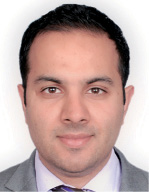Urban water supply and sanitation is a state subject under the constitution of India (entries 6 and 17 of List II). The 74th amendment to the constitution provided for the establishment of municipalities, following which state governments were able to delegate some of their responsibilities and functions, including those in relation to water supply and sanitation (WSS) services, to local municipalities.
Institutional arrangements for the provision of WSS services vary from state to state. But broadly speaking three structures have developed over time: municipal corporations or municipal councils; semi-autonomous state water supply and sanitation boards; and public health engineering departments, which for the purposes of this article, are collectively referred to as urban local bodies (ULBs).

Counsel
Trilegal
However, most urban centres in India suffer from chronic inadequacy and inequality of WSS services. This is despite the per capita availability of water in cities like New Delhi exceeding that of Paris as detailed in the government’s 11th five year plan (2007-2012). Further, most service providers have low revenue realizations and often suffer from opaque decision making processes, poor utilization of resources, high fiscal budgetary dependence, a lack of accountability and non-responsiveness to consumer needs.
You must be a
subscribersubscribersubscribersubscriber
to read this content, please
subscribesubscribesubscribesubscribe
today.
For group subscribers, please click here to access.
Interested in group subscription? Please contact us.
你需要登录去解锁本文内容。欢迎注册账号。如果想阅读月刊所有文章,欢迎成为我们的订阅会员成为我们的订阅会员。
Saurabh Bhasin is a counsel at Trilegal and Pia Singh is an associate. Trilegal is a full-service law firm with offices in Delhi, Mumbai, Bangalore and Hyderabad.
New Delhi
A-38, Kailash Colony
New Delhi – 110 048
India
Tel: +91 11 4163 9393
Fax +91 11 4163 9292
Bangalore
The Residency, 7/F
133/1, Residency Road
Bangalore – 560 025
Tel: +91 80 4343 4646
Fax: +91 80 4343 4699






















